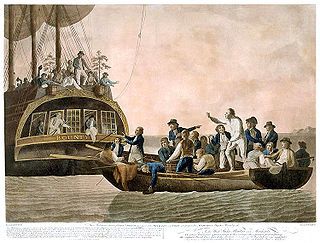This is your morning Open Thread. Pour your favorite beverage and review the past and comment on the future.
Find the past “On This Day in History” here.
Click on images to enlarge
April 29 is the 119th day of the year
(120th in leap years) in the Gregorian calendar. There are 246 days remaining until the end of the year.
On this day in 1946, Hideki Tojo, wartime premier of Japan, is indicted by the International Military Tribunal for the Far East of war crimes. In September 1945, he tried to commit suicide by shooting himself but was saved by an American physician who gave him a transfusion of American blood. He was eventually hanged by the Americans in 1948 after having been found guilty of war crimes.
After Japan’s unconditional surrender in 1945, U.S. General Douglas MacArthur issued orders for the arrest of the first forty alleged war criminals, including Tojo. Soon, Tojo’s home in Setagaya was besieged with newsmen and photographers. Inside, a doctor named Suzuki had marked Tojo’s chest with charcoal to indicate the location of his heart. When American military police surrounded the house on 8 September 1945, they heard a muffled shot from inside. Major Paul Kraus and a group of military police burst in, followed by George Jones, a reporter for The New York Times. Tojo had shot himself in the chest with a pistol, but despite shooting directly through the mark, the bullets missed his heart and penetrated his stomach. At 4:29, now disarmed and with blood gushing out of his chest, Tojo began to talk, and two Japanese reporters recorded his words. “I am very sorry it is taking me so long to die,” he murmured. “The Greater East Asia War was justified and righteous. I am very sorry for the nation and all the races of the Greater Asiatic powers. I wait for the righteous judgment of history. I wished to commit suicide but sometimes that fails.”
He was arrested and underwent emergency surgery in a U.S. Army hospital, where he was cared for postoperatively by Captain Roland Ladenson. After recovering from his injuries, Tojo was moved to the Sugamo Prison. While there he received a new set of dentures made by an American dentist. Secretly the phrase Remember Pearl Harbor had been drilled into the teeth in Morse Code.
He was tried by the International Military Tribunal for the Far East for war crimes and found guilty of the following crimes:
count 1 (waging wars of aggression, and war or wars in violation of international law)
count 27 (waging unprovoked war against the Republic of China)
count 29 (waging aggressive war against the United States of America)
count 31 (waging aggressive war against the British Commonwealth of Nations)
count 32 (waging aggressive war against the Kingdom of the Netherlands)
count 33 (waging aggressive war against the French Republic)
count 54 (ordering, authorizing, and permitting inhumane treatment of Prisoners of War (POWs) and others)Hideki Tojo accepted full responsibility in the end for his actions during the war. Here is a passage from his statement, which he made during his war crimes trial:
It is natural that I should bear entire responsibility for the war in general, and, needless to say, I am prepared to do so. Consequently, now that the war has been lost, it is presumably necessary that I be judged so that the circumstances of the time can be clarified and the future peace of the world be assured. Therefore, with respect to my trial, it is my intention to speak frankly, according to my recollection, even though when the vanquished stands before the victor, who has over him the power of life and death, he may be apt to toady and flatter. I mean to pay considerable attention to this in my actions, and say to the end that what is true is true and what is false is false. To shade one’s words in flattery to the point of untruthfulness would falsify the trial and do incalculable harm to the nation, and great care must be taken to avoid this.
He was sentenced to death on 12 November 1948 and executed by hanging on 23 December 1948. In his final statements, he apologized for the atrocities committed by the Japanese military and urged the American military to show compassion toward the Japanese people, who had suffered devastating air attacks and the two atomic bombings.


 1947 Thor Heyerdahl and five crew mates set out from Peru on the
1947 Thor Heyerdahl and five crew mates set out from Peru on the
Recent Comments